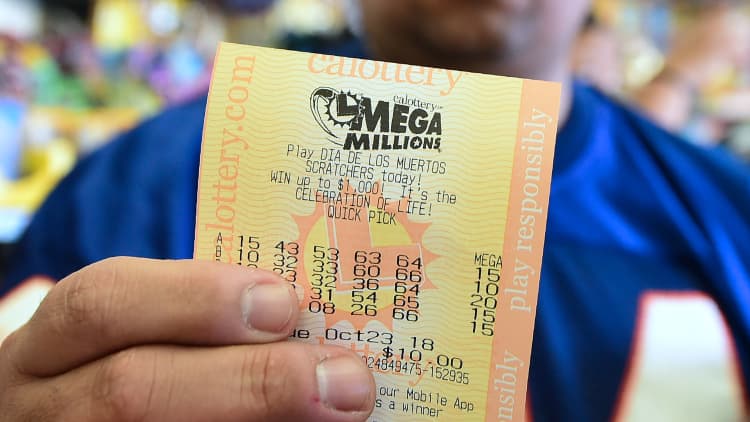You have about a one in 302,575,350 chance of winning the Mega Millions $340 million jackpot that's up for grabs in Friday night's drawing.
To put that in perspective, you have a far greater chance of being attacked by a grizzly bear while on vacation at a U.S. National Park. And even that only happens every one in 2.7 million visits, according to the National Park Service.
Despite the long odds, thousands of Americans will buy tickets for a chance to win. About half of Americans play state lotteries, with total sales topping $71 billion in 2017 (the most recent year on file), according to the U.S. Census Bureau. Consumers each spend an average of about $86 a month on lottery tickets, including everything from scratch-off cards that come out of vending machines to entries for the Powerball and Mega Millions competitions.
Spending on lotto tickets adds up to about $1,038 each year per consumer, according to a recent survey commissioned by Bankrate of over 2,300 U.S. adults. It's worth noting that Bankrate's results are slightly higher than the $70 a month that the Bureau of Labor Statistics found the average American spent between the third quarter of 2017 and the second quarter of 2018.
Spending several hundred dollars a year on lottery tickets can make a big dent in your budget. Especially if your paycheck isn't that big to begin with. Yet Americans earning less than $30,000 admit to spending about 13% of their income on lottery tickets, Bankrate found.
"$1 means different things to different people," says Aaron Clarke, a certified financial planner with Halpern Financial. A person who makes $500,000 per year probably isn't worried about $1,000 nearly as much as someone who makes $30,000. "That same $1,000 means much more to you when you make less," Clarke says.
But this type of spending is far from an outlier. Compared to lottery ticket sales, Americans spend more each month on things such as cable, subscription boxes and rideshare apps like Uber and Lyft, as well as daily purchases such as lunch, takeout dinners and drinks with friends. Impulse purchases alone amount to $109 per month, according to a poll of 2,000 U.S. adults commissioned by Ladder and conducted by OnePoll in April.
There are psychological reasons why Americans continue to play the lottery even though they know the odds, writes Penn State psychology professor Kevin Bennett. Humans are wired to have unrealistic optimism when it comes to the probability of something happening, for one.
It's also a habit that's easy to rationalize, since a chance to play typically only sets you back a buck or two. "Similar to smoking, the lottery is easier to justify when you only buy one pack at a time or one ticket every day," Bennett writes. "It looks a lot less tempting, though, when you consider the total sum of money spent."
If you are looking to curb your spending on guilty pleasures like lottery tickets, Clarke recommends creating a long-term financial plan that can then be broken down into a monthly budget. "If someone would like to accomplish other things like college savings, retirement savings or paying off debt, then having the plan to refer to helps remind you that they have a higher priority than this spending," Clarke says.
The most important thing to remember is to ask yourself: Did I plan for this purchase? If you did, and you're still meeting all the other expenses and savings goals you have in place, then spending $1,000 on lottery tickets really isn't as impactful, Clarke adds.
Don't miss: Here are 3 mistakes to avoid if you win a jackpot
Like this story? Subscribe to CNBC Make It on YouTube!



